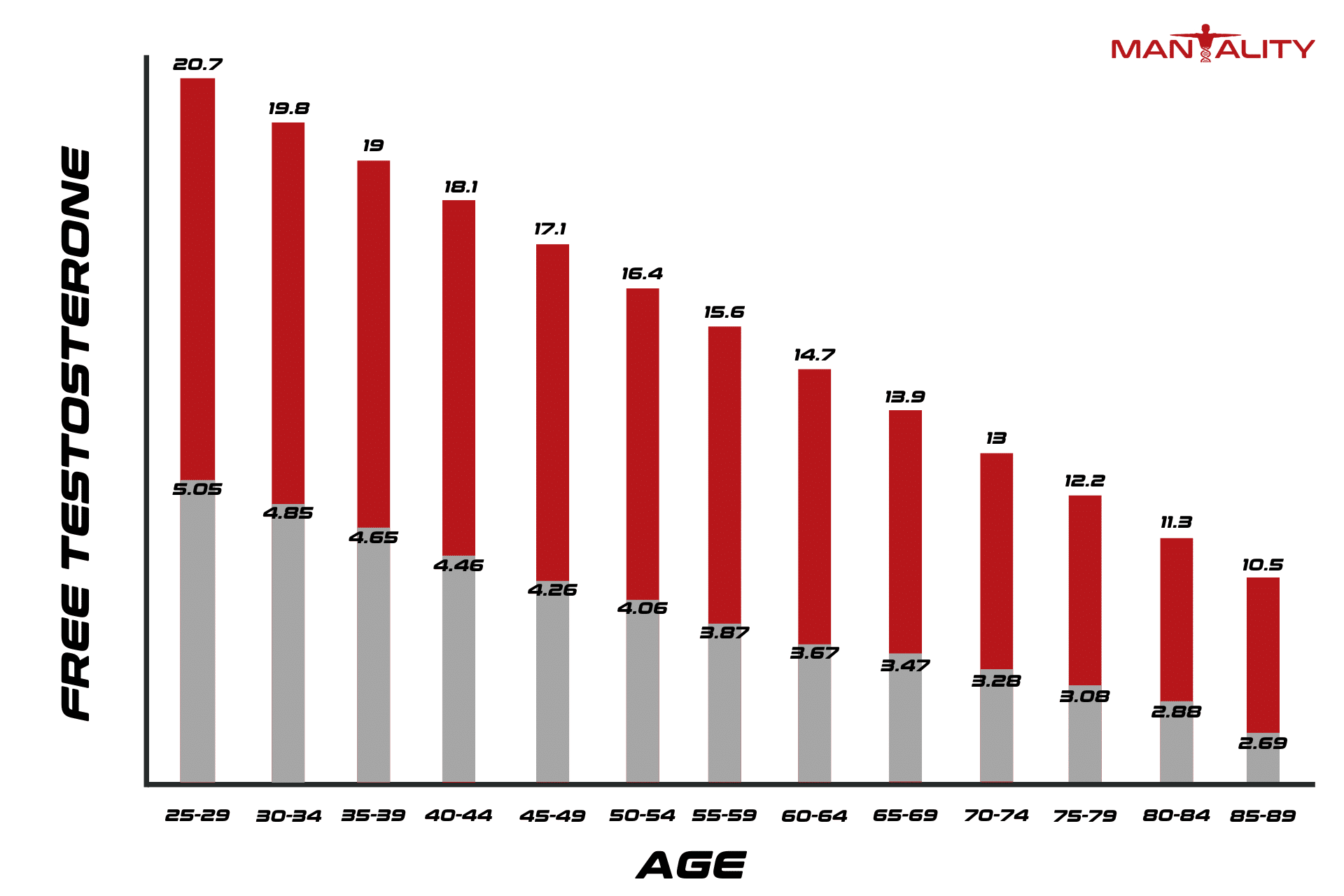The Side Effects of Too Much Testosterone
Level hormones lead to a healthy lifestyle. So of course too much testosterone can have implications on your health. Find out what side effects to look for.
Keyword(s): Too Much Testosterone
Increasing testosterone levels can have beneficial effects on a man’s health. But did you know that too much testosterone can have serious implications on one’s health, as well?
Testosterone Replacement Therapy aims to improve a man’s cognition, libido, and physical physique. Yet, someone receiving Testosterone Replacement Therapy is at risk of other side effects.
We’re going to explain what happens when the body produces too much testosterone. Before beginning Testosterone Replacement Therapy, it’s important to know the possible side effects!
If you plan to start Testosterone Replacement Therapy, this article is for you!
What is Testosterone?
Testosterone is a steroid hormone. While it is present in women, it’s the male sex hormone that characterizes men.
When boys go through puberty, the testosterone in their bodies increase. During puberty, testosterone growth will cause a boy’s voice to deepen. It also causes facial and pubic hair to develop.
The levels of testosterone in a male’s body fluctuates throughout their lives. Testosterone levels climax while a man is in his 20’s. As he ages, the amount of testosterone his body produces starts to fall.
Signs of Low Testosterone Levels
Men whose bodies aren’t producing enough testosterone don’t feel energized. They struggle to get through their daily lives. Men with low levels of testosterone will also experience lower sex drive.
Testosterone makes up the male sex drive. So, lower levels of testosterone would lead to decreased libido. Men experiencing low levels of testosterone may have difficulty maintaining erections.
Men with low levels of testosterone can also develop depression and mood fluctuations. They may have more difficulty in concentrating, as well.
Testosterone Replacement Therapy
There are several forms of Testosterone Replacement Therapy. They all consist of using testosterone supplements under the supervision of a doctor.
Testosterone therapy often gets a bad rep. In the past, people have abused it. In the past, people have injected steroids without their doctor’s discretion.
It’s possible for people to have naturally high levels of testosterone. When someone receives an influx of testosterone, they can experience intense side effects.
People who take testosterone are likely to see improvements in their depression. They’ll feel more energized, confident, and motivated.
Muscle development depends on something known as protein synthesis. While weightlifting, the cells in our bodies break down. That’s why it’s important to consume protein before and after a workout.
The cells in our bodies go through a cycle of death and regeneration. Protein helps our cells regenerate and carry out their functions. Protein synthesis is the process of cell regeneration, and testosterone enhances this process.
Testosterone supports protein synthesis. In supporting protein synthesis, it improves muscle mass and basal metabolic rate. Men who take testosterone are likely to see better results from working out!
Side Effects of Too Much Testosterone
Testosterone Replacement Therapy has many benefits. Yet, there are also adverse side effects that you and your doctors should look out for.
Mood Changes & Increase in Anger
Increased levels of testosterone can lead to reduced cognition. Men who take too much testosterone are likely to have poorer judgment. They may make rash decisions before thinking their decisions through.
They can also respond to situations more in more aggressive manners. Too much testosterone can lead to aggression and risky behavior. Mood swings are typical when there is too much testosterone in the body.
Mood swings related to high testosterone can range from euphoria to depressive lows. People with high testosterone are more irritable and impatient.
They’re also more likely to snap at others. This is especially the case in people who abuse steroids.
Physical Signs of Too Much Testosterone
It’s also possible for people receiving testosterone therapy to gain weight. Sometimes this happens because the body will convert extra testosterone into estrogen.
Men with higher levels of testosterone are more prone to develop acne, oily skin, and balding. High testosterone levels correlate with high DHT levels.
DHT is another sex hormone that’s responsible for male characteristics. These characteristics include facial hair and a deep voice. When there is too much DHT in the body, acne can develop and a man can lose his hair.
Testicle Shrinkage
The brain will signal for the body to stop producing testosterone when it senses too much of it. When this happens, the testicles shrink in size because it stops producing testosterone. This can also lead to low sperm count.
Tell your doctor right away if you notice a shrinkage in the size of your testicles. This may be a sign that your testosterone levels are too high.
Higher Blood Cell Counts
High blood cell count is one of the biggest things to look out for during testosterone therapy. Increases in red blood cell count can cause blood clotting. Blood clotting can lead to strokes or heart attacks.
Red blood cell and hemoglobin levels can increase with testosterone therapy. Your doctor should conduct routine blood exams to watch your red blood cell levels.
Elevated Estrogen Levels
Increased levels of testosterone can lead to increased levels of estrogen.
Testosterone naturally converts into estrogen through a process known as aromatization. When there is an influx of testosterone in the body, more will convert into estrogen.
Men can experience mood swings and breast sensitivity as a result. Their blood pressure can also increase. That’s why it’s important to watch someone’s estrogen levels during testosterone therapy.
Monitored Testosterone Therapy is Important
Doctors can help ensure that you’re not receiving too much testosterone during therapy. They can keep your testosterone, estrogen, and DHT levels balanced.
Your doctor or testosterone replacement therapist should check your blood levels. In doing so, you can decrease the risks of blood clots, heart attack, stroke, mood swings, and acne.
There is Help
Testosterone Replacement Therapy can improve energy levels, libido, and the effects of aging.
It is, however, possible to receive too much testosterone. When there is too much testosterone in the body, you can experience adverse side effects.
It’s necessary to undergo Testosterone Replacement Therapy under the supervision of a doctor. Contact Mantality to learn more about managing the side effects of high testosterone!




